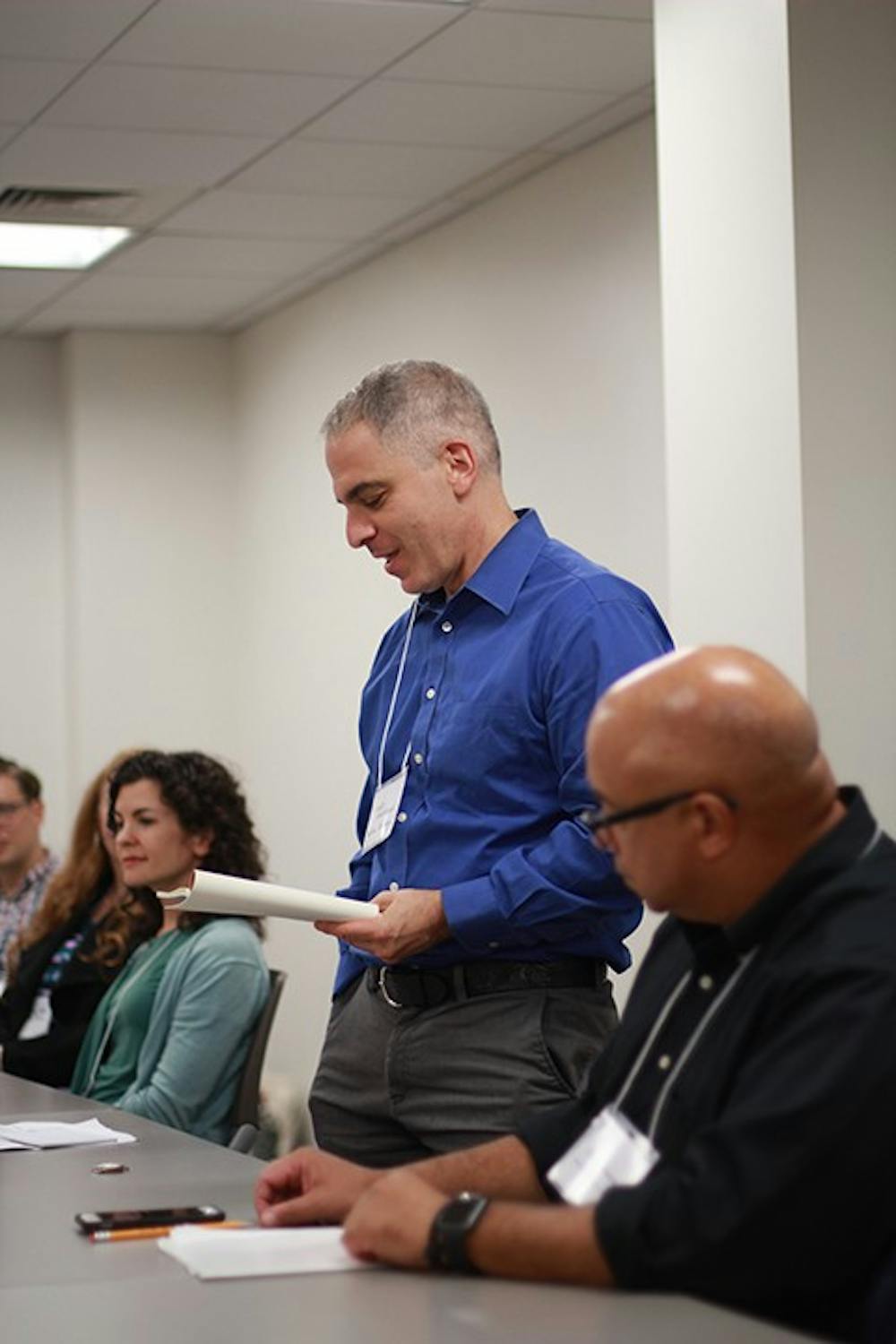Shippensburg University brought to life the poetry of the Pennsylvania State System of Higher Education’s (PASSHE)’s best students and professionals in two-day sessions of the English Association of Pennsylvania State Universities (EAPSU) on Oct. 4-6.
Through a variety of sessions held in the Ceddia Union Building and Dauphin Humanities Center, students, faculty and English professionals shared poetry and the art of creative writing.
At a session titled “Readings from Central Pennsylvania Poets,” five poets from different universities in Pennsylvania and surrounding states who grew up in Central Pennsylvania, shared their art. Each poet was introduced and shared a bit about his or her life and what inspired each poem.
The first to present poetry was Allison Adair, who is originally from Pittsburgh and grew up in Gettysburg and Mechanicsburg, Pennsylvania, but now is an English professor at Boston College.
Adair read her poem “Gettysburg,” which was about a childhood house she played in that was once used in the Civil War.
She also read “City Life,” which she wrote about her experience raising her daughter in a city versus the rural setting she had always been used to.
Adair also read works titled, “Hitching,” about the band Van Halen; “Rural Route,” about her Gettysburg childhood memory playing on a strip near an airport, and “The Big Thinkers,” which is about coal versus gold mining.
Next was Claire McQuerry, English professor at Kutztown University, who read poems that were written to negative emotions.
The first two poems she read were titled “Envy” and “Spite.” They discussed the destructions the negative emotions caused, and the etymology behind them.
McQuerry also read “Mansions,” about her experience inside a friend’s mansion as a child.
The third poet was James Najarian, English professor at Boston College, and Kutztown native.
He read his poem titled “Goat Song,” a light-hearted poem about the pet goats his family owned when he was a child. The second poem he read was called, “Near Apex, PA,” which is about a fake town in Pennsylvania he made up.
Najarian’s last two poems, “Schoolhouse,” which was about a schoolhouse being sold, and “My Big Head,” was about his childhood memory of when he lived in Wyomissing, Pennsylvania, where he got his head stuck in a railing fence as a child.
SU’s own Jordan Windholz, English professor, read poetry from his collection “Other Psalm.”
He read “Myth,” which was about the first 100 sight words we learn as children, and “The Nomads,” which was about Apophatic theology.
Windholz also read “Apocalypse,” about how Pennsylvania seems apocalyptic to him; “Gospel,” also about Pennsylvania, “The Shepherd’s Song” and “Telling it Slant,” about his two daughters, and lastly “Why Sorrow Matters.”
Jerry Wemple, English professor at Bloomsburg University, ended the session. Wemple grew up mainly in Susquehanna Valley, Pennsylvania.
Wemple read his poem “Awl Street,” which was about how he sold things on the street as a kid to make extra money.
“Bridge” is a poem Wemple wrote about his dark thoughts while driving on a bridge one night, which stems from sad poetry he tends to write in November each year.
Wemple’s last poem he read was entitled “Beauty Operator,” which is what his mother called women who worked out of their homes as hair stylists.



The Slate welcomes thoughtful discussion on all of our stories, but please keep comments civil and on-topic. Read our full guidelines here.